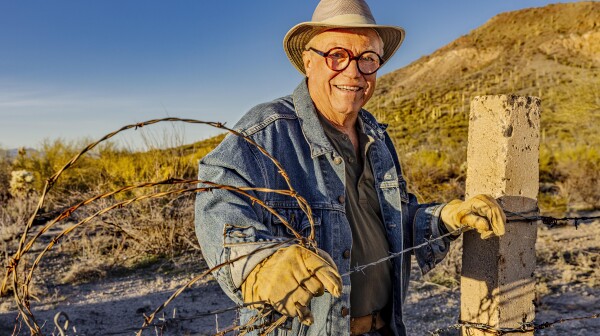AARP Eye Center
CLOSE ×
Search
Popular Searches
Suggested Links
Working to enhance the quality of life for all Arizonans
APR 24, 2024
Frank Soto was inspired to serve as interim executive council president for AARP Arizona to make a meaningful impact and contribution to the community.
The names of the first 10 Medicare drugs whose prices the federal government will negotiate directly with manufacturers were released Aug. 29. Popular but pricey blood thinners, diabetes medications, cancer treatments make historic list.
APR 16, 2024
Who doesn’t want to give their loved ones that perfect postcard moment? You know, the big box with a bow that has a furry new member of the family inside. Unfortunately, that desire to create a cherished memory of a pet leads many to a scam they won’t soon forget.
APR 12, 2024
Dr. Len Kirschner served as an AARP member for decades, making significant impacts by serving on the AARP Arizona executive council and as the organization’s state president while advocating for the 50-plus community across the valley.
APR 12, 2024
AARP Arizona empowers women to strive for greatness and create impactful change in their community.
AARP is here to help you take on today – and every day. From sharing practical resources, to holding fun activities and events, AARP is providing opportunities to connect and help build an even stronger Arizona for all ages to live, work and play. We hope you’ll join us!
H.B. 2764 is a milestone in long-term care reform that passed with overwhelming bipartisan support.
Tax season isn't just about filing returns; it's also prime time for IRS impostor scams. According to the Federal Trade Commission, consumers reported theft of $5.8 million via these scams in 2023 alone. Here is what you need to know about IRS impostors so you can stay one step ahead of these crooks.
Arizona: Find upcoming election dates, registration deadlines and options for voting, such as voting by mail, early voting or voting with a disability.
During April and the celebration of Women’s History Month, it’s important to note that at the core of AARP’s foundation is the inspiring story of Ethel Percy Andrus. She was a pioneering woman whose mission to empower older adults and champion their rights created a legacy that extends far beyond her time. Ethel's unwavering passion continues to live on through dedicated women who serve and volunteer at AARP Arizona, spreading warmth, compassion, and hope.
Did you know that AARP has at least one office in every state? As a volunteer with your local AARP Arizona team, you may provide education, advocacy or other services to address community needs and help people 50-plus live their best lives — and you’ll work side by side with our dedicated staff and other volunteers!
In December 2023, Arizona State University celebrated the graduation of over 11,000 students, among whom Cindy Lee stood out not just for her academic achievements but for her inspiring journey. At 67, Lee was awarded the title of Outstanding Graduate from the College of Integrative Sciences and Arts, marking a significant milestone of earning a master’s degree decades after graduating from college.
AARP Arizona’s top legislative priority this year is pushing for improvements to the state’s long-term care system. AARP is looking for volunteers to help advocate at the Legislature, as well as for Arizonans willing to share their experiences with the state’s nursing homes and assisted-living facilities.
AARP Arizona proudly participated in Cupid Crew, a heartwarming campaign to spread love and joy to older adults within our communities. Our volunteers delivered roses and cards to older adults as a symbol of our appreciation and respect for their invaluable contributions to society.
AARP's state tax guide on 2023 Arizona tax rates for income, property, retirement and more for retirees and residents over 50.
Search AARP Arizona
Connecting you to what matters most, like neighbors do. Find events, volunteer opportunities and more near you.
Sign Up & Stay Connected
Sections
About AARP Arizona
Contact Information and more from your state office. Learn what we are doing to champion social change and help you live your best life.



































































